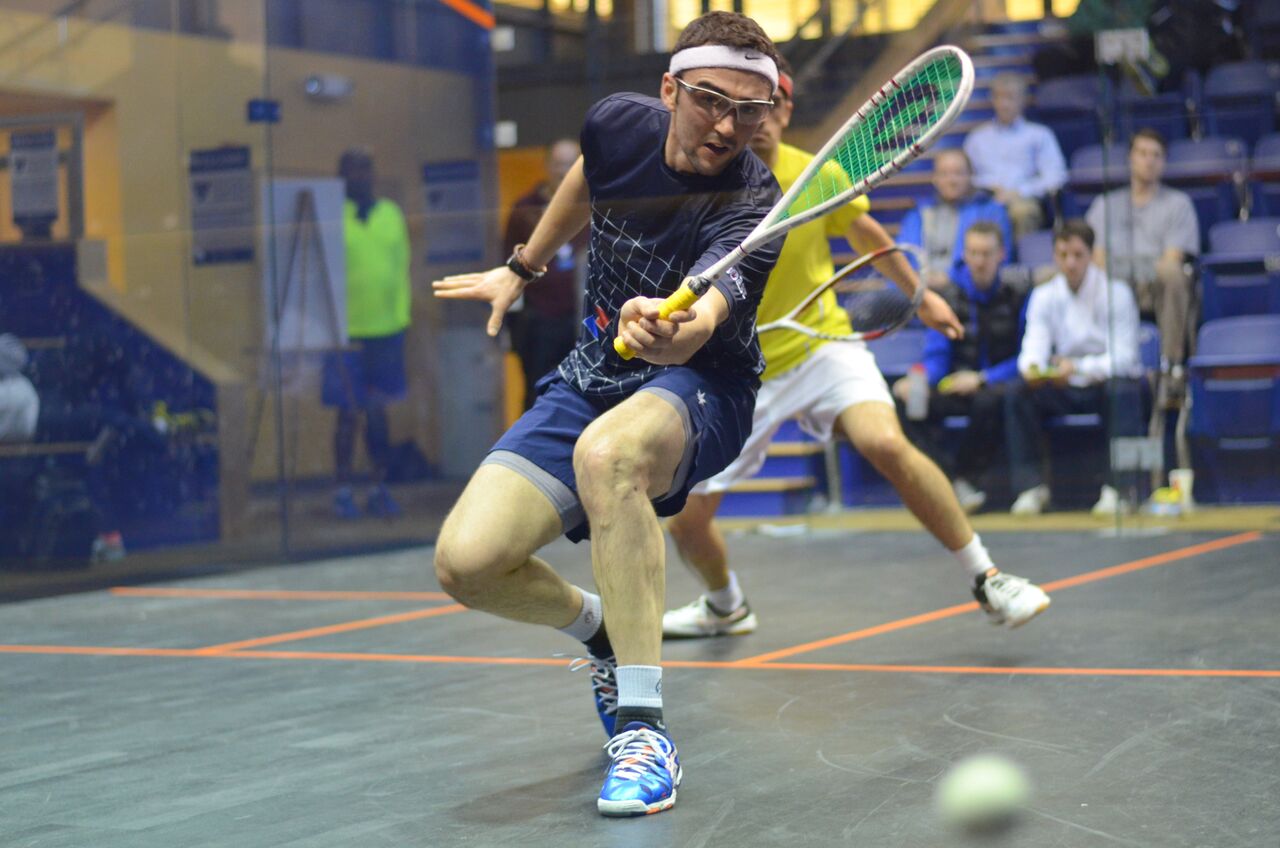By Chris Hanson, US Elite Performance Program Member and World No. 84
While many adult and junior players consistently work on their game, trying to “break through to the next level”, only an elite few reach the upper echelons of the sport. Chris Hanson is one of those players, and in this issue he reflects on levels achieved and those still to come.
JUNIOR
Junior squash has a very broad range of skill level, as it includes players from eight years of age all the way up to eighteen years of age. Despite the wide age range, juniors as a whole need to develop sound swing and movement mechanics, and an understanding of the game through basic drilling and feeding sessions with an experienced coach.
Juniors will physically develop much differently from one another, and at different ages. It is important to remind junior players of this as they move up the age groups—they might get frustrated that other players are faster or hit the ball harder than they do at the moment. Eventually physical development will even out as players approach eighteen years old, so it is critical for juniors to get their technique to a solid level by then so that they are not reliant on athleticism to win.
Apart from working on the basics of the game with a coach, it is advantageous to an up-and-coming youngster to play with his or her friends, peers, and even players a bit older to learn by experience. Not only that, you want to keep the game fun—squash is too hard to play if it doesn’t make you happy!
COLLEGE
There is a considerable jump in difficulty when juniors transition to playing in college. Those who are new to the college squash circuit will be exposed to much more diverse opponents in terms of age, game type, and experience.
At this level, the most important thing to do is work on match fitness through condition games. My go-to condition games are: 1) deep game with straight-volley-drop option; 2) one player can only hit straight, the other can play anywhere; and 3) two/four game (only play front left/back right corners, then switch to front right/back left corners). If a player has spare time during the day, getting to the courts to solo practice is imperative to grooving technique/shots, because he or she is most likely no longer doing feeding sessions with a coach.
Off the court, college is a great experience, but one that will also pull the player in many different directions other than onto a squash court. A majority of the player’s time will be spent in class, working on assignments, and going to social events. Time for squash practice will usually consist of around one to two hours per day, so it is important for college players to make that time really count by giving maximum effort when on court to ensure that they are ready for the season.
PROFESSIONAL
The biggest jump in difficulty between levels comes when a player transitions from the college level to the professional level. Competing on the international circuit against the best players in the world means approaching squash not just as a game, but rather a job. If a player takes the leap to join the pro tour, then most of his or her day will now revolve around improving in all aspects of the game.
First and foremost, a pro player is responsible for taking care of their bodies in order to handle the high intensity of training sessions and competition. The following creates a solid base for a pro: 1) high level of cardiovascular fitness and muscle strength—this is done through off-court cardio and weight sessions; 2) healthy diet—pros must fuel their daily efforts with both the right quantity and the right type of food; 3) recovery—to be able to maintain training intensity, pros must speed up recovery as much as possible with active stretching, foam rolling, ice baths, and massage. Base fitness, diet, and recovery need to be down cold to compete at a high level on tour.
On the court, pro players are constantly working on technique, shot selection, movement and game strategy through practice with other pros, working with a coach and daily solo practice. Every practice session must have a purpose, no matter what the focus is. Maintaining this focus not only improves a professional’s technical game, but also prepares them for the mental side of competing on tour, which can be even more taxing than the physical demands of squash. Pros must deal with traveling extremely long distances to tournaments, and there are no consolations at this level—if you lose, you are out. The best way to build mental toughness when going out to compete is to: 1) believe in all the hard work put in—when things get tough, the best players remember all of the training sessions that got them there; and 2) never stop trying—players who give it everything they have come off the court knowing that, and they will be able to build off of every performance, whether they win or lose.
Lastly, professional players must be honest with themselves about how long it will take to get to where they want to be. Breakthroughs on the world tour don’t happen without months and years of hard work beforehand. The higher a player climbs in the PSA rankings, the harder it gets to keep climbing at the same rate. There will be many disappointing and/or frustrating times when the results do not come, but the most successful players are able to look past those low points and continue pushing on. Then, when the breakthroughs do come, they make all the tough times worth it.


